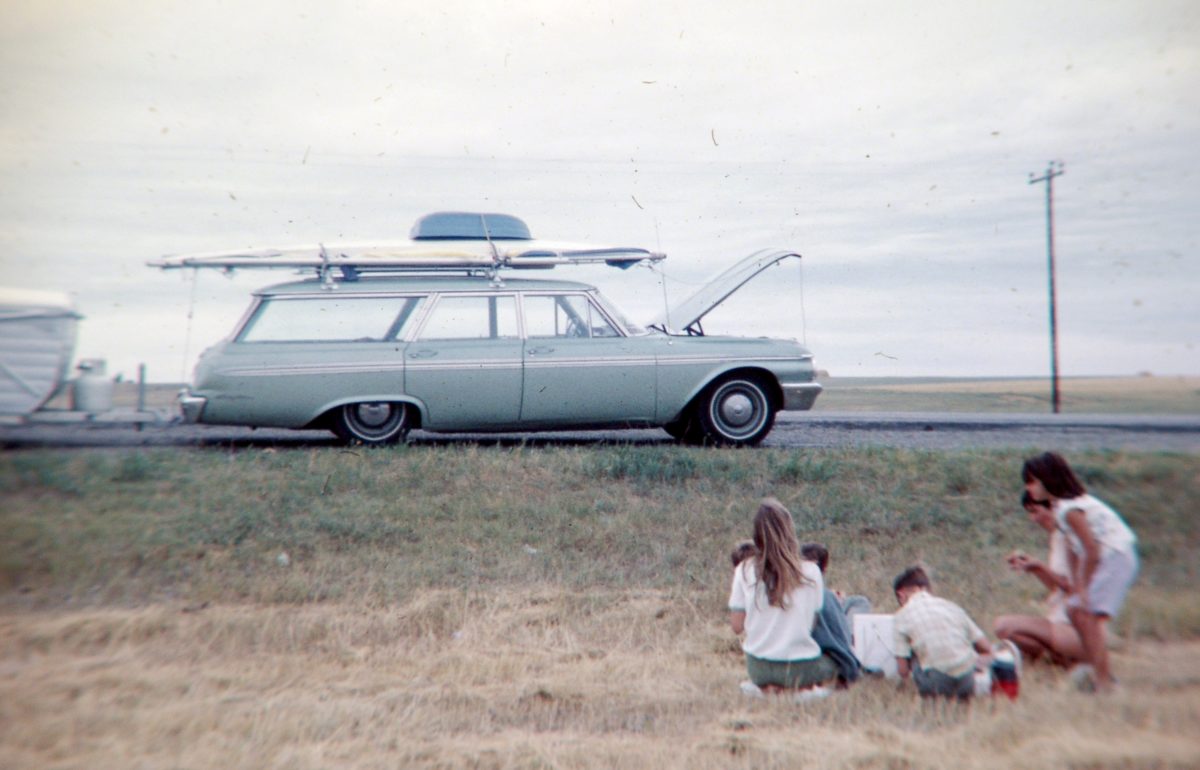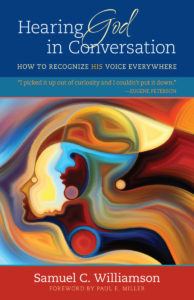“My wife’s ninety-year-old mother died last Thursday and we mourn. Someone reminded me that when we grieve, “we do not grieve like those who have no hope.”
I grew up in a family that camped. My father was a pastor who got four weeks of vacation. We took all four weeks at once, camping the whole month of July, mostly in wooded campsites next to windy lakes. We strapped our small Sunfish sailboat on top of our sagging station wagon.

Those vacations were a young boy’s fantasy, filled with mysterious forests and stormy seas. Four weeks wasn’t enough. We hauled our home wherever we went. It was often hot, but sometimes cold, and occasionally rainy. The car always broke down. And I loved it.
I recently heard a quote from the Epistle to Diognetus that resurfaced all those old memories,
The difference between Christians and the rest of mankind is not a matter of nationality, language, or customs. Christians do not live apart in separate cities, speak any special dialect, nor practice any eccentric way of life…
For them, any foreign country is a motherland, and any motherland is a foreign country.
Home Away from Home
Sure, camping could be uncomfortable. The pop-up trailer served as our kitchen, dining room, living room, and four bedrooms, yet this flimsy, moveable home was tinier than the smallest bedroom in our solid brick house.
Discomfort was part of the fun. When something went wrong—and the tent loved to leak, the stove hated to be lit, and our car was addicted to breakdowns—it was part of the adventure, a Fine And Pleasant Misery.
But last week, all three of our cars had problems (a faulty transmission, a gas leak, and a misfiring engine). I was frustrated. Life isn’t supposed to be difficult. It should work.
But should life work the way I expect it to? It hasn’t for the forty-odd years of my life. (Only forty of my fifty-nine years have been odd.) How can I enjoy the fine and pleasant miseries of camping and yet let a weak phone signal irritate the hell out of me?
When I camp I expect misadventures, and when I’m home I expect comfort.
We Mostly Ignore Tomorrow
In his Pulitzer Prize winning book, The Denial of Death, Ernest Becker observed that modern people refuse to acknowledge our mortality, or any unexpected discomfort. We claw, scratch, and snatch at “positive thinking,” and we ignore reality. He wrote,
Taking life seriously means that all we do must be done in the lived truth of the evil and terror of life, of the rumble of panic underneath everything, otherwise it’s phony.
No one escapes life alive. No matter how much medical science advances, the mortality rate remains the same: one hundred percent. We all die. If we ignore tomorrow, we are living phony, cowardly lives.
Remembering our future death reminds us that this world isn’t home. We are just sojourners, travelers passing through, hikers backpacking the Appalachian Trail.
We can hold this world without holding onto this world; we can live in this world without getting our life from this world. We can be at home without making it our home. We are strangers in a strange land.
Our future death and our daily adversities means any foreign country can be our present home.
Heaven Is Not for The Cowardly
Cowards live phony lives, afraid of what’s outside the door. Of all people, Christians can have courage. Because we know what’s outside that door. In this life, we’ll experience everything the world throws at us, broken cars, spats with spouses, wars, rumors of wars, and death.
With one difference. We shall live forever. This land we call home is the painful birth canal to the home we were made for, because our motherland is somewhere else.
Let’s never let that hope die while we live.
Sam
Hearing God is supposed to be normal. God himself longs for us to grow in intimacy with him; and the greatest way to know God is to learn to hear his voice.


 Selling Our Soul for a Bowl Full of Gruel
Selling Our Soul for a Bowl Full of Gruel
Dear brother Sam,
Thanks for reminding me of the dependable breakdowns on family trips. Some of my own camping trips were memorably uncomfortable. But, mostly, thank you for reminding us that we are living on borrowed time and, to paraphrase a Civil War general, that this life is actually meant to be uncomfortable, lest we come to enjoy it too much.
Hi Steve,
I love your line, “dependable breakdowns”!! Lovely irony.
And thank you also for reminding me that life’s discomforts point me to the ultimate comfort.
Sam
I love this phrase, “This land we call home is the painful birth canal to the home we were made for, because our motherland is somewhere else.” I am looking forward to the motherland! -or Fatherland 🙂 I also think that the photograph of your family vacations is awesome!
Hi Kathy,
I long forward to the motherland (or fatherland 🙂 ); and I pray that God creates in me a greater longing for it.
When we finally have that deep hope in Him, I think it makes our best times here leaveable!
Sam
The most memorable times in my life have been times of adversity – these are the stories we tell and the the times we relive. Caught in a bad storm out on the water, car break downs, etc. usually involving other people, and how we came through it together, which gets to real life = relationships, with others, and with God.
Hi David,
I too learn the most in adversity. So why do I love the comfort so much?
But I also learn from friendships, and you definitely are a friend.
Thanks
I love that quote from the Epistle to Diognetus. Is all the alarm and complaining American Christians are doing about the culture change we’re in the middle of just an example of “when I’m home I expect comfort”? I think the author of that epistle would be surprised that we feel entitled to any culture at all.
Martha,
You are spot-on. For centuries, people expected suffering in life: the death of our children, marauders, unknown illnesses, civil instability, and injustice. It was just part of life.
And now that our society is the safest it’s ever been, we act as though we deserve it!
Thanks for reminding me that life hasn’t always been so … comfortable.
Sam
Amen! We should live in the moment (not meaning it as the world does, but rather using all our resources to spread the Word), but we should always keep in mind eternity after this life. This we can do by keepin our eyes fixed on Jesus Christ, who is our only way…If you keep your eyes on the horizon, fixed on what is jet to come after this life, then it is also easier to make choices that are acceptable for God. (Allthough the main goal is to know God as well as one can, to grow to love Him, and then forsake other ways to please Him out of love).
Hi Chris,
Love your comments. Thanks.
Sam
Hi Sam, a friend shared your blog with me, and it is great. Your concentration on eternal life and resurrection are, I am sure the most positive way to share your faith. Can I share my blog with you, as I think we overlap in expression and concerns.. https://wordpress.com/menus/roughgrounds.wordpress.com
Thanks. I’ll check it out. Appreciate the tip.
Sorry, that link should be https://wordpress.com/menus/roughgrounds.wordpress.com
Steve
This brought to mind a section of Exodus I have been studying.
To the Israelites: “Also you shall not oppress a stranger, for you know the heart of a stranger, because you were strangers in the land of Egypt.”
Exodus 23:9 NKJV
Worth thinking about!
Hi Anna,
That’s a great passage to bring to mind. It reminds me that Jesus himself knows our hearts, because he too was a stranger here with us.
Thanks
Thanks for the encouraging insight, Sam, with your unique (as always) way of summing it up: “This land we call home is the painful birth canal to the home we were made for, because our motherland is somewhere else.” Amen, mi amigo.
Also, “A Fine and Pleasant Misery”? Have we talked before about Pat McManus? I’m pleased to see you’re a fan. I’m a McManus McManiac–got all’a his books. Well, most of them. What a great humor writer!